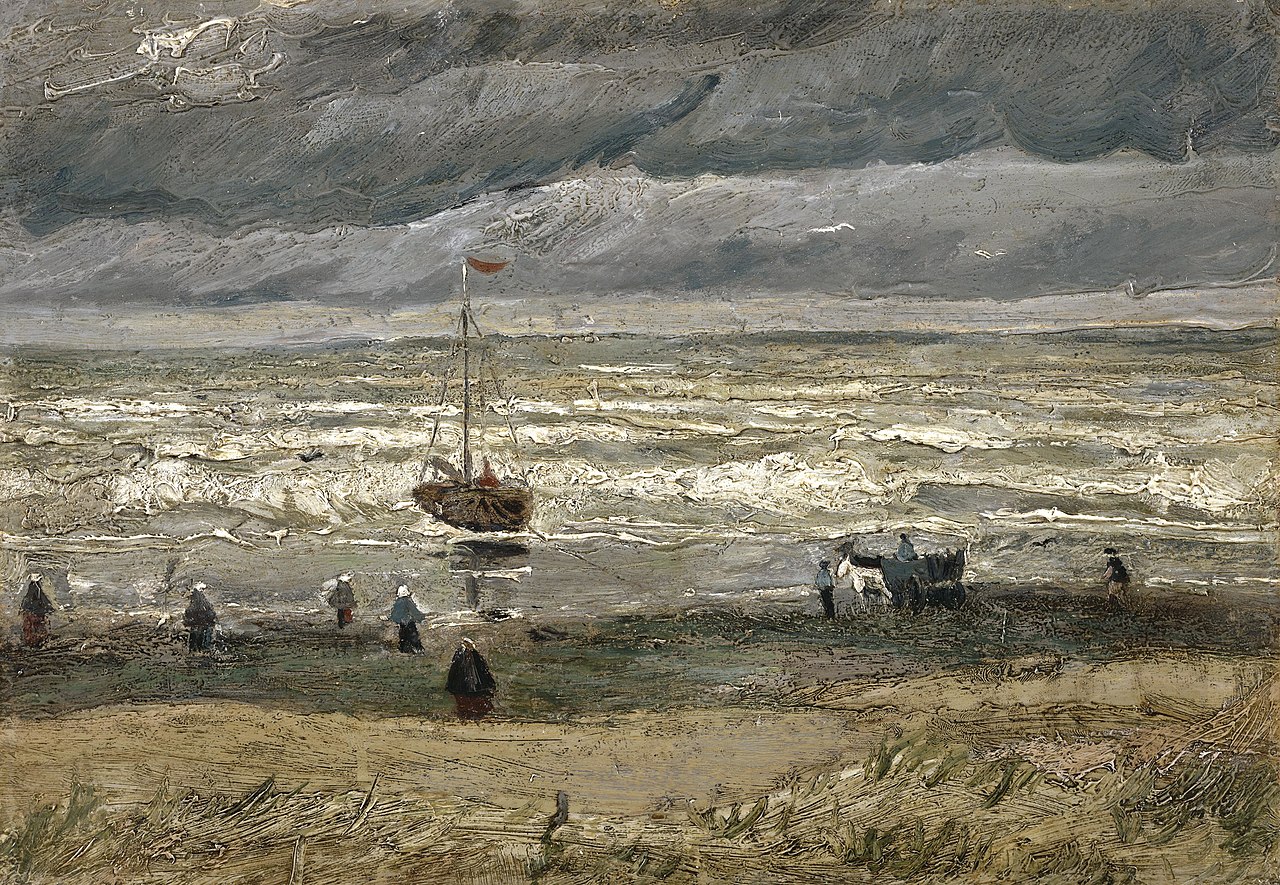'Any landscape is a condition of the spirit.' -
Henri-Frédéric Amiel
This is one of those quotes about landscape you come across in a diverse range of books. It is also available in tweet-friendly images, such as the one below where it is superimposed on a mountain scene. This longer version is from the translation of Amiel's Journal Intime, published in 1885 by the British novelist Mrs. Humphry Ward. The whole book can be found on Project Gutenburg, so I have copied from there below the journal entry where Amiel makes his observation. As can be seen, it was prompted by an autumn day, with leaves on the ground and a few flowers lingering in the garden. The mountains in the distance were the Alps - Lancy is part of Geneva, the city where Amiel was born and died. This entry was written when he was thirty-one. He was a poet and a philosopher but this journal only appeared posthumously. 'It reveals,' according to the Encyclopedia Bitannica, 'a sensitive man of great intellectual ability, struggling for values against the skepticism of the age. Widely translated, it gained Amiel lasting fame.'
October 31, 1852. (Lancy.)—Walked for half an hour in the garden. A fine rain was falling, and the landscape was that of autumn. The sky was hung with various shades of gray, and mists hovered about the distant mountains, a melancholy nature. The leaves were falling on all sides like the last illusions of youth under the tears of irremediable grief. A brood of chattering birds were chasing each other through the Shrubberies, and playing games among the branches, like a knot of hiding schoolboys. The ground strewn with leaves, brown, yellow, and reddish; the trees half-stripped, some more, some less, and decked in ragged splendors of dark-red, scarlet, and yellow; the reddening shrubs and plantations; a few flowers still lingering behind, roses, nasturtiums, dahlias, shedding their petals round them; the bare fields, the thinned hedges; and the fir, the only green thing left, vigorous and stoical, like eternal youth braving decay; all these innumerable and marvelous symbols which forms colors, plants, and living beings, the earth and the sky, yield at all times to the eye which has learned to look for them, charmed and enthralled me. I wielded a poetic wand, and had but to touch a phenomenon to make it render up to me its moral significance. Every landscape is, as it were, a state of the soul, and whoever penetrates into both is astonished to find how much likeness there is in each detail. True poetry is truer than science, because it is synthetic, and seizes at once what the combination of all the sciences is able at most to attain as a final result. The soul of nature is divined by the poet; the man of science, only serves to accumulate materials for its demonstration.
Ferdinand Hodler, Lake Geneva with the Savoy Alps, 1907
Mrs Ward's translation of Amiel's Journal was reviewed and praised by the great Victorian critic, Walter Pater. He quotes Amiel's statement about landscape and the soul in this review (which can be read online). He also observes that although 'in Switzerland it is easy to be pleased with scenery', there are passages of natural description in Amiel that 'rise to real distinction.' He gives three examples, on the effects of fog, frost and rain, and I will close here by quoting the last of these:
August 22, 1873. (Scheveningen).—The weather is rainy, the whole atmosphere gray; it is a time favorable to thought and meditation. I have a liking for such days as these; they revive one’s converse with one’s self and make it possible to live the inner life; they are quiet and peaceful, like a song in a minor key. We are nothing but thought, but we feel our life to its very center. Our very sensations turn to reverie. It is a strange state of mind; it is like those silences in worship which are not the empty moments of devotion, but the full moments, and which are so because at such times the soul, instead of being polarized, dispersed, localized, in a single impression or thought, feels her own totality and is conscious of herself.
Vincent Van Gogh, Scheveningen Beach in Stormy Weather, 1882



No comments:
Post a Comment
Comments are moderated because even with these filters spam is more common than non-spam. Your comment therefore won't appear immediately. Sorry for the inconvenience - genuine comments are really welcome.